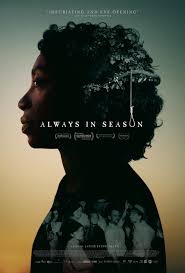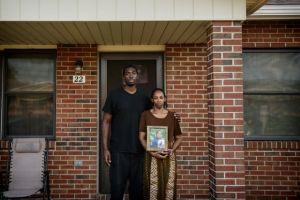Always in Season (2019)
Always in Season is American Documentary released on April 28, 2019 (Toronto) and Produced by Jacqueline Olive. It tells the tragedy of African American teenager Lennon Lacy, who in August 2014, was found hanging from a swing set in Bladenboro, North Carolina. His suspicious death was ruled a suicide by law enforcement, yet Lennon's mom, Claudia, her family, and numerous others trust Lennon was lynched.
This movie also received several nominee including :
- INTERNATIONAL DOCUMENTARY ASSOCIATION Best Writing (Nominee)
- SUNDANCE FILM FESTIVAL-U.S. Special Jury Award for Moral Urgency
- DALLAS INTERNATIONAL FILM FESTIVAL Best Documentary.[1]
Plot
Always is Season explores the lingering impact of more than a century of lynching African Americans and connects this form of historic racial terrorism to racial violence today. The film rolls around the case of Lennon Lacy, an African American teenager who was discovered hanging from a swing set in Bladenboro, North Carolina, on August 29, 2014. In spite of inconsistencies in the case, nearby authorities immediately taid that Lennon's death is a suicide, yet his mom, Claudia, trusts Lennon was lynched. Claudia moves from her deep grief to driving the battle for equity for her child.
As the film goes, Lennon's case, and the doubts encompassing it, converge with accounts of different networks looking for equity and compromise. A couple hundred miles away in Monroe, Georgia, a diverse group of reenactors, including the adult daughter of a previous Ku Klux Klan pioneer, yearly dramatize a 1946 quadruple lynching to guarantee the the victims are never forgotten and urge the local area to share data that may deal with the culprits. As the psychological oppression of the past seeps into the present, the film asks: what will it take for Americans to begin building a national movement for racial justice and reconciliation?[2]
Controversy
The narrative film portrays how a mother cannot get the equity and reality with regards to the demise of his young African-American child that she accepts his child is one of the survivor of lyncing African-American. Since the local police just pronounced the death to be a a suicide with no clarification. There were a long of questions that were left unanswered by the police; such as why the death was never pursued? Was there any evidence that a happy, popular boy kill himself? Whose belt was being used to hang Lennon?[3]
“it is an unflinching look at how the racial sins of the past flow through the arteries of the present day. Since the Lacy investigation started, there have been 20 Black men who were found hanged in a public place. These were all quickly deemed suicides without much investigation, if any.”[4] –Odie Enderson


